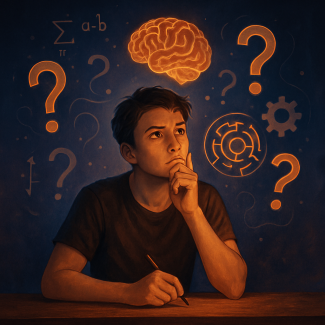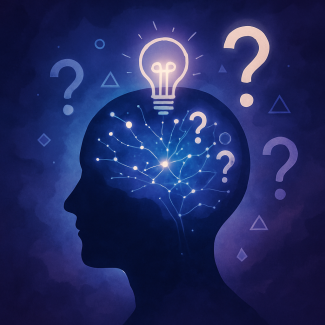
Challenging Riddles That Will Sharpen Your Thinking Skills
Why Solve Difficult Riddles? Benefits for Your Brain
Exercising the brain with challenging riddles is one of the most effective ways to enhance cognitive agility, boost memory retention, and stimulate creative thinking. Hard riddles push your mind to think in unconventional ways, making them perfect tools for both learning and entertainment.
When you engage with brain-teasing riddles, you’re doing more than just having fun—you’re improving concentration, developing problem-solving skills, and even fostering patience and persistence. These mental workouts are beneficial for all age groups, making them a great way to engage individuals or groups in a productive pastime.
What Makes a Riddle Truly Difficult?
A riddle becomes truly difficult when it demands you to:
- Think outside the box
- Interpret ambiguous or misleading clues
- Apply lateral thinking techniques
- Break down complex ideas into simple components
The challenge lies not just in the content, but in the wording. Hard riddles often use clever wordplay, double meanings, or unexpected logic that misleads and confuses the reader. Solving them requires attention to detail, a strong grasp of language, and the ability to connect unrelated ideas.
Top Hard Riddles with Answers to Test Your Brainpower
Here is a handpicked collection of the hardest riddles with answers to push your mind to its limits. Are you ready to challenge yourself?
1. The Endless Question
Riddle: The more you take from me, the bigger I become. What am I?
Answer: A hole.
2. The Odd Equation
Riddle: I am a number. Multiply me by any other number, and the answer will always be the same. What number am I?
Answer: Zero.
3. Tricky Family Logic
Riddle: A girl has as many brothers as sisters, but each brother has only half as many brothers as sisters. How many brothers and sisters are there in the family?
Answer: Four sisters and three brothers.
4. The Time Trap
Riddle: What comes once in a minute, twice in a moment, but never in a thousand years?
Answer: The letter "M".
5. The Impossible Scenario
Riddle: A man is pushing his car along a road when he comes to a hotel. He shouts, "I’m bankrupt!" Why?
Answer: He’s playing Monopoly.
6. The Eternal Presence
Riddle: I am always there, some distance away. I follow you around, yet I vanish at night. What am I?
Answer: Your shadow.
7. Logic and Language
Riddle: Forward I’m heavy, but backward I’m not. What am I?
Answer: The word "ton".
8. The Disappearing Act
Riddle: What disappears as soon as you say its name?
Answer: Silence.
9. The Unexpected Guest
Riddle: You see a house with all four walls facing south, and a bear walks by. What color is the bear?
Answer: White. The house is at the North Pole.
10. The Growing Challenge
Riddle: What grows bigger the more you take away from it?
Answer: A hole.
11. The Twisted Path
Riddle: You see me in water, but I never get wet. What am I?
Answer: A reflection.
12. The Mind-Bender
Riddle: Which word in the dictionary is always spelled incorrectly?
Answer: Incorrectly.
13. The Time Travel Test
Riddle: What can travel around the world while staying in the same corner?
Answer: A stamp.
14. The Sound of Silence
Riddle: I speak without a mouth and hear without ears. I have no body, but I come alive with wind. What am I?
Answer: An echo.
15. The Digital Riddle
Riddle: The person who makes it, sells it. The person who buys it, never uses it. The person who uses it, never knows they’re using it. What is it?
Answer: A coffin.
16. The Calendar Trick
Riddle: I have all the months, but no days. What am I?
Answer: A calendar.
17. The Memory Puzzle
Riddle: What has a head, a tail, is brown, and has no legs?
Answer: A penny.
18. The Common Object
Riddle: What can fill a room but takes up no space?
Answer: Light.
19. The Aging Enigma
Riddle: The older I get, the smaller I become. What am I?
Answer: A candle.
20. The Final Test
Riddle: What comes at the end of everything?
Answer: The letter "g".
How to Approach Difficult Riddles Successfully
To solve challenging riddles, consider the following tactics:
- Read the riddle carefully and break it down into parts
- Identify misleading elements that might be tricks
- Think of multiple meanings of words
- Eliminate the obvious—riddles often work by misdirecting your assumptions
- Don’t rush; allow your brain time to process the question
Over time, solving tough riddles gets easier as your mind adapts to abstract and lateral thinking. It’s just like training a muscle—the more effort you put in, the stronger it becomes.
Fun Ways to Use Riddles in Everyday Life
Riddles are not just for solo brain workouts—they can:
- Liven up family game nights
- Be part of classroom learning to engage students
- Serve as team-building challenges at work
- Enhance memory exercises for older adults
- Break the ice in group settings or parties
Integrating difficult riddles with answers into different settings not only sparks laughter and competition but also improves communication and collaboration.
Why Hard Riddles Are Worth the Challenge
Even if some riddles leave you stumped at first, the process of thinking deeply and finally arriving at the correct answer can be immensely satisfying. It’s a rewarding way to spend time and can improve mental sharpness in the long run.
Whether you’re using these riddles to test yourself, stump a friend, or simply pass time in a clever way, you’re actively training your brain to perform better.
In short, hard riddles are more than just fun—they’re a tool for mental fitness, personal growth, and shared joy. Try them out, share them with others, and enjoy the intellectual adventure they offer.





